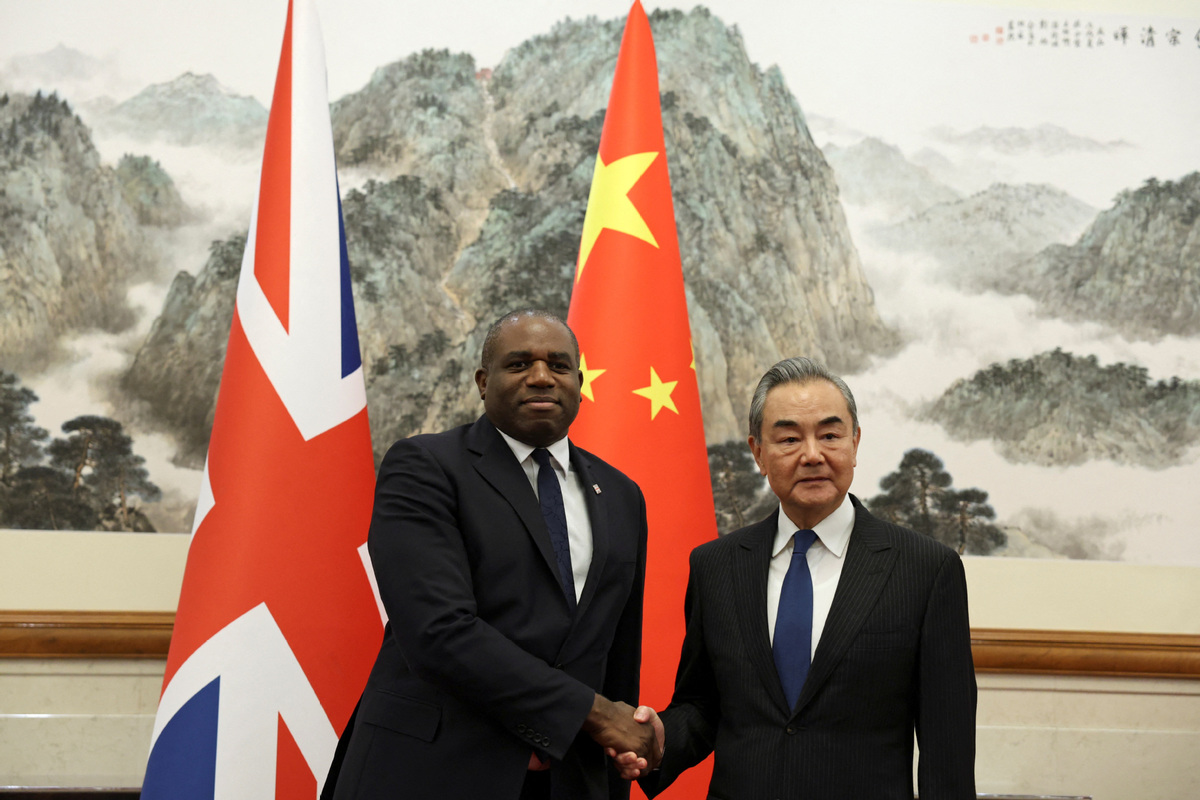“`html
Unlocking Potential: London and Beijing Foster Mutual Cooperation for a Bright Future
Introduction to London-Beijing Cooperation
In today’s globalized world, cities are increasingly recognized as pivotal players in international cooperation. London and Beijing, two of the world’s most influential capitals, have embarked on a journey to unlock potential through mutual cooperation. This article explores the initiatives, benefits, and future prospects of this thriving partnership.
Historical Context of London and Beijing Relations
The historical ties between London and Beijing trace back centuries, characterized by trade, cultural exchange, and diplomacy. Recent years have seen a shift towards more strategic and sustainable forms of collaboration.
Key Milestones in London-Beijing Relations
- 2015: The UK and China established the “UK-China Year of cultural exchange”, showcasing art, education, and innovation.
- 2018: The signing of the ‘Belt and Road Initiative’ agreement, boosting economic cooperation and infrastructure development.
- 2021: Joint initiatives in finance, technology, and climate change were further solidified to enhance bilateral trade.
Areas of Cooperation
1. Economic Collaboration
Both cities aim to enhance trade and investment opportunities. The financial sectors of London and Beijing are among the largest in the world, providing a solid foundation for economic cooperation.
Key Economic Initiatives
| Initiative | Description | Impact |
|---|---|---|
| London Stock Exchange and Shanghai Stock Exchange Collaboration | Shared listings and financial products designed to tap Eastern and Western markets. | Increased investment opportunities for both regions. |
| Investment Promotion Programs | Encouraging businesses from both cities to invest in infrastructure and technology. | Growth in tech startups and innovation hubs. |
2. Cultural Exchange
Cultural exchange programs play a vital role in fostering mutual understanding and respect. Events showcasing arts, education, and tourism help to deepen ties between the two cities.
Examples of Cultural Initiatives
- Art Exhibitions: Innovative projects featuring artists from both London and Beijing, showcasing diverse perspectives.
- Language Programs: Exchange programs between schools to promote language learning and cultural immersion.
3. Innovation and Technology
The tech sectors in both cities are thriving, offering numerous opportunities for partnership in innovation, research, and development.
Collaborative Tech Projects
- Smart City Initiatives: Partnering on projects aimed at making urban living more efficient and sustainable.
- AI Research Collaborations: Joint research endeavors focusing on artificial intelligence and its implications for society.
Benefits of London-Beijing Cooperation
As London and Beijing continue to collaborate, several benefits are becoming apparent, enhancing opportunities for both cities.
Economic Growth
- Increased trade between the two cities, leading to economic expansion.
- Attraction of foreign investments in key sectors.
Cultural Enrichment
- Greater cultural appreciation and understanding through exchange programs.
- Strengthening personal and professional networks across borders.
Sustainable Development
- Joint initiatives focused on sustainability and climate change mitigation.
- Innovation in clean energy solutions benefiting both urban centers.
Barriers to Cooperation
While there are numerous benefits, certain barriers must be addressed to enhance cooperation between London and Beijing.
- Geopolitical Tensions: Issues related to diplomacy and

## Strengthening UK-China Relations: A New Chapter
On October 18, 2024, in Beijing, a significant meeting unfolded between Foreign Minister Wang Yi and David Lammy, the UK’s Foreign Secretary. This meeting marks a pivotal moment as it is the first visit to China by a British cabinet official since Labor Prime Minister Keir Starmer assumed office in July.
### Commitment to Enhanced Communication
During their discussions at the Diaoyutai State Guesthouse, Wang Yi expressed China’s eagerness to engage with the UK in enhancing strategic dialogue and fostering practical collaboration. He articulated a vision for elevating bilateral relations to new heights characterized by stability and mutual advancement.
### Acknowledgment of Common Goals
Wang praised the British Labour government’s initiative to establish a long-term relationship that is both stable and strategically vital. He emphasized that this approach not only reflects historical contexts but also meets contemporary needs of both nations, ultimately benefiting their populations while aligning with broader international trends.
### Collaborative Ventures Ahead
China affirmed its intent to rejuvenate dialogue mechanisms across various sectors including trade, finance, and sustainable development initiatives. Wang reiterated that cooperation must be mutually beneficial while underscoring China’s sovereignty regarding issues related to Taiwan and Hong Kong. He urged respect for each nation’s core interests as essential for facilitating fruitful interactions.
### Upholding Commitments
Lammy acknowledged Britain’s commitment towards open dialogue and collaborative efforts with China while managing existing differences through respectful engagement. He reaffirmed the UK’s stance on Taiwan—rooted in long-standing diplomatic principles—and emphasized an enduring dedication to this policy framework.
### Shared Interests Over Division
Highlighting extensive common interests between China and the UK, Lammy advocated against any notion of an “iron curtain” separating the two nations. He expressed optimism about embarking on a renewed path towards strengthening bilateral partnerships poised for robust growth.
### Responsibilities on Global Issues
As key players within the United Nations Security Council, both countries hold collective responsibility for global peacekeeping efforts. Lammy stressed that they should collaborate not only on free trade but also engage diplomatically in addressing pressing geopolitical crises such as those seen in Ukraine or conflicts like those involving Israel-Palestine tensions or Myanmar’s situation.
The discussion concluded with an exchange of perspectives on these intricate global matters underscoring their significance in today’s multifaceted geopolitical landscape.


